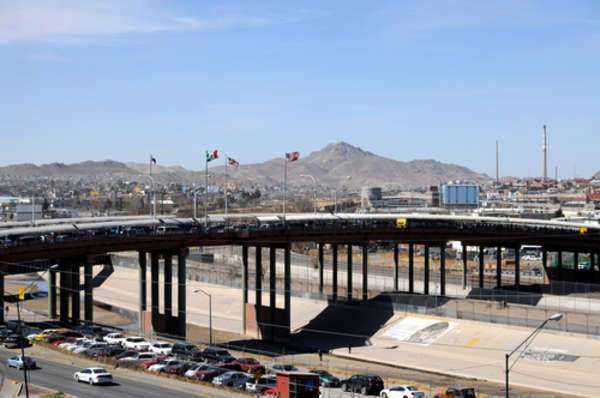Border Crossing Vigilante Groups
Border Crossing Vigilante Groups: The Implications for Law and Society
Border crossing is a complex issue that has led to the emergence of vigilante groups in some countries. These groups take the law into their own hands, patrolling and monitoring national borders to prevent the illegal entry of immigrants. While the intentions of these groups may be to protect national borders, their actions are controversial and can have far-reaching consequences. This article explores the implications of border crossing vigilante groups for law and society.
What are Border Crossing Vigilante Groups?
Border crossing vigilante groups are non-state actors that operate at or near national borders. These groups are comprised of individuals who are concerned about illegal immigration into their country and who believe that the government is not doing enough to secure the border. They patrol the border, monitor the movement of people crossing illegally, and often report them to the authorities.

Implications for Law
1. Vigilante Justice: Border crossing vigilante groups are not part of the official law enforcement apparatus in any country. By taking the law into their own hands, these groups are essentially administering vigilante justice. Vigilante justice violates the rule of law, which is a fundamental aspect of a democratic society. It also undermines the functioning of the official law enforcement system, which is responsible for maintaining law and order.
2. Legal Implications: The actions of border crossing vigilante groups often impact the legal system of the country. Illegal immigrants who are detained by these groups are often turned over to the authorities. The legal system must then process these individuals through the legal system, which can be a burden on the legal system and result in backlogs.
Implications for Society
1. Social Tensions: Border crossing vigilante groups operate at the intersection of immigration and national security issues. These issues are often contentious and polarizing, leading to social tensions within communities. Vigilante groups may be viewed as impeding the human rights of immigrants, which can cause significant social disruption.
2. Xenophobia: Border crossing vigilante groups often have underlying attitudes of xenophobia, which can result in negative attitudes towards immigrants. Such attitudes can manifest in hate speech or hate crimes, further polarizing society.
3. Divisiveness: Vigilante groups can exacerbate political tensions and create divisiveness within communities. Immigration is a complex and nuanced issue, requiring a multi-dimensional approach that addresses the needs of all stakeholders.
📝 See Also
Conclusion
The actions of border crossing vigilante groups pose significant implications for law and society. While these groups may have genuine concerns about border security, their actions undermine the legal and law enforcement systems in society. The social implications of these groups can also cause divisions within communities, leading to significant societal tension. Addressing the issue of illegal border crossings requires a comprehensive, multi-dimensional approach that addresses the concerns of all stakeholders. It is necessary to strike a balance between enforcement of the law and respecting the human rights of immigrants.
Due to its vastness in size, the border of Mexico and the United States is far too large for the United States Border Patrol to ensure the prevention of all attempts at illegal entry. Logistically, the enormity of this task reigns supreme; said boundary is some 2,000 miles in length, and cameras put in place at border crossings in hopes of allowing everyday people with remote access to the video feed to report unlawful entry have led to little success.
Some American citizens, meanwhile, feel the need to take the law into their own hands, and with force. Vigilante border groups have formed as part of grass-roots initiatives to curb illegal immigration to the United States, operating where they believe official border security agents and the federal government has failed.
Probably the most prominent of these border groups in the international consciousness is the Minuteman Project, a civilian-led, volunteer operation founded by Jim Gilchrist. The Minuteman Project rose to prominence in 2005 when they announced they would be spending a month in the Arizona desert to help observe border crossings for any signs of illegal activity. As Jim Gilchrist explained, his organization believes in proactive attempts of upholding domestic immigration policy as it is written.
In addition, the efficiency of Jim Gilchrist and company did not go unnoticed; they were responsible for the apprehension of several hundred illegal immigrants. But, the way in which they achieved these numbers was decidedly suspect. Numerous cases of stopping suspected illegals at gunpoint were reported, and furthermore, there were no real reliable procedures put in place to screen out members of white supremacist groups.
Jim Gilchrist and his followers are not the only vigilante organization that has sprung up in response to the continuing illegal immigration dilemma. Numerous border groups have formed in recent memory to combat what they see as a major to threat to American interests. A majority of these vigilante groups are heavily armed, toting night-vision goggles and rifles. Yet, on a local level, the emergence of border groups may pose a serious threat to the human rights of Mexican immigrants attempting to cross the border of Mexico and the United States illegally; not all of the vigilantes share the same degree of militarily training as Jim Gilchrist, a veteran of the Vietnam War, if any at all.
Thus, there is an increased risk that undue assaults and even death will occur from some vigilante pursuits of suspected illegals, as improper knowledge of how to use a firearm only exacerbates the problem overzealousness which has characterized the attempts of some border groups to close in on undocumented immigrants. Moreover, on an international level, purported vigilante justice in the form of violence only stands to hurt relations between Mexico and the United States, when realistically, the two countries must work in concert to treat the underlying causes of illegal immigration.